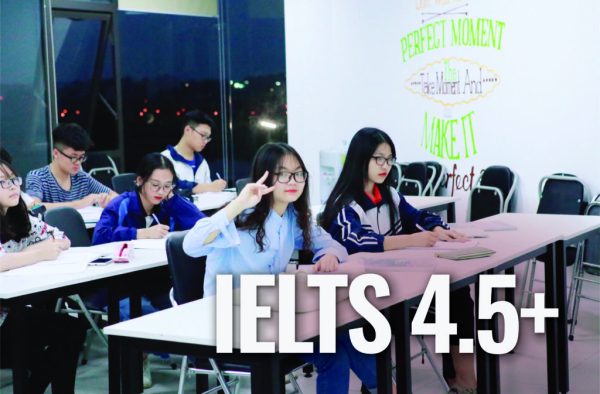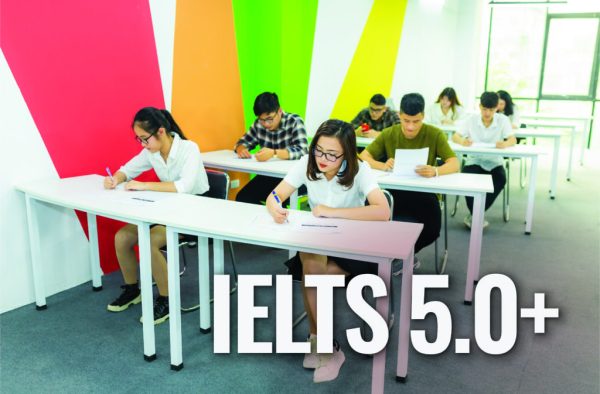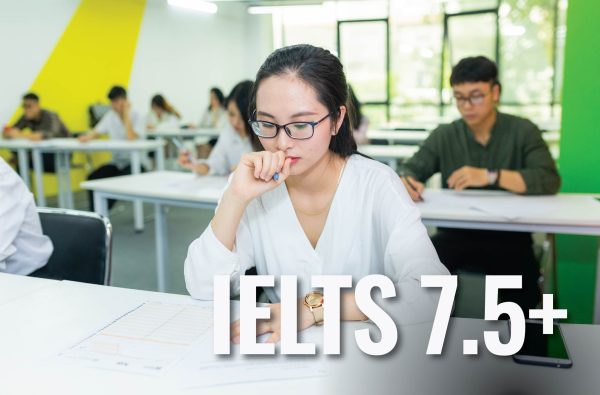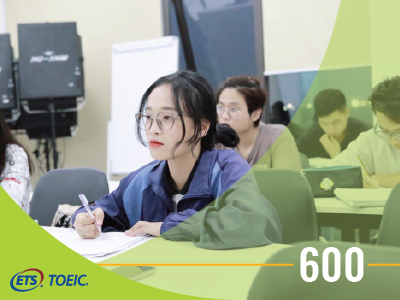Nhận tư vấn về lộ trình học
Đề thi IELTS Writing Task 2 #60
19 Tháng 7, 2023 | 559 lượt xem
Có 5 dạng câu hỏi chính trong IELTS Writing Task 2, bao gồm:
· 1) Opinion Essay
· 2) Discussion Essay
· 3) Advantage – Disadvantage Essays
· 4) Solution Essays
· 5) Direct Questions Essays
Trong đó, dạng đề phổ biến nhất trong liên tiếp nhiều năm qua là Opinion (Writing Task 2 Agree or Disagree) và Discussion (Discuss both views). Vì thế thí sinh có mục tiêu IELTS 7.5+ cần đặc biệt lưu ý 2 dạng câu hỏi này. Hãy cùng Universal giải chi tiết đề thi gần đây để nắm vững cách triển khai một bài luận Opinion nhé!
Trong chuyên mục IELTS Writing Task 2, Universal sẽ cung cấp cho các bạn các chủ đề thường xuất hiện nhất trong kỳ thi IELTS tại IDP với bài mẫu đầy đủ bố cục và danh sách từ vựng Band 8+.
Danh mục
Luyện IELTS Writing Task 2 thế nào?
- Bước 1. Đọc bài mẫu để biết cách phân chia đoạn, ý chính
- Bước 2. Lưu lại các cụm từ thể hiện: quan điểm, trình bày tranh luận, từ vựng chỉ mặt lợi, mặt hạn chế của một vấn đề, và các nguyên nhân – giải pháp xoay quanh một hiện tượng
- Bước 3. Sử dụng những gì đã take notes để viết bài của riêng mình.
Đề thi IELTS Writing #60
Some people believe that developments in the field of artificial intelligence will have a positive impact on our lives in the near future. Others, by contrast, are worried that we are not prepared for a world in which computers are more intelligent than humans. Discuss both of these views and give your own opinion.
Sample #60
People seem to be either excited or worried about the future impact of artificial intelligence (trí thông minh nhân tạo). Personally, I can understand the two opposing points of view; I am both fascinated by developments in artificial intelligence and apprehensive (hiểu biết, hiểu rõ) about its possible negative effects.
On the one hand, the increasing intelligence of technology should bring some obvious benefits. Machines are clearly able to do many jobs better than humans can, especially in areas that require high levels of accuracy (mức độ chính xác cao) or calculations using large amounts of data. For example, robots are being developed that can carry out surgical procedures (các ca mổ) with greater precision (sự chính xác) than a human doctor, and we already have cars that use sensors (cảm ứng) and cameras to drive themselves. Such technologies can improve safety by reducing the likelihood (khả năng) of human errors ( lỗi của con người). It is easy to imagine how these developments, and many others, will steadily improve our quality of life.
On the other hand, I share the concerns of people who believe that artificial intelligence may harm us if we are not careful. In the short term (trong tương lai gần), it is likely that we will see a rise in unemployment as workers in various industries are replaced by machines or software programs. For example, self-driving vehicles (phương tiện tự động (không người lái)) are expected to cause redundancies (sự thừa thãi) in driving jobs, such as lorry drivers, taxi drivers and bus drivers. In the medium term (trong tương lai xa hơn), if intelligent technologies gradually take jobs away from humans, we may find that people become deskilled (mất đi kỹ năng) and lose their sense of purpose (nhận thức về mục đích) in life. A longer term fear is that computers become so intelligent that they begin to make decisions without human oversight (sự giám sát) and without regard for our well-being (không tính đến lợi ích của loài người).
In conclusion, while intelligent machines will no doubt improve our lives in many ways, the potential risks (các nguy cơ tiềm ẩn) of such technologies should not be ignored.
Useful expressions
- artificial intelligence: trí thông minh nhân tạo
- apprehensive: hiểu biết, hiểu rõ
- high levels of accuracy: mức độ chính xác cao
- surgical procedures: các ca mổ
- precision: sự chính xác
- sensor: cảm ứng
- likelihood: khả năng
- human error: lỗi của con người
- in the short time: trong tương lai gần
- self-driving vehicle: phương tiện tự động (không người lái)
- redundancy: sự thừa thãi
- in the medium term: trong tương lai xa hơn
- deskilled: mất đi kỹ năng
- sense of purpose: nhận thức về mục đích
- oversight: sự giám sát
- without regard for our well-being: không tính đến lợi ích của loài người
- potential risks: các nguy cơ tiềm ẩn
Bí quyết chinh phục IELTS Writing Task 2

Bạn nhất định phải xây dựng một nền tảng thật vững chắc trước khi tiến hành luyện đề. Hãy học chuyên sâu về từ vựng và ngữ pháp ở giai đoạn đầu tiên học tiếng Anh. Tham khảo tối thiểu 20 bài mẫu trước khi bắt tay vào viết bài của riêng mình để giải đề thi IELTS Writing task 2. Viết bài xong, hãy sử dụng những công cụ suggest corrections để xem liệu mình có sai sót ở đâu không. Bạn cũng có thể gửi bài cho những người đã từng thi IELTS, hay giáo viên có kinh nghiệm để sửa giúp.
Bí quyết luôn bám sát mục tiêu là thường xuyên test bài theo định dạng kỳ thi IELTS IDP để biết năng lực của mình. Nhận diện điểm yếu để cố gắng khắc phục là cách nhanh nhất để thành công đó. Bạn hãy tham khảo bài thi tại đây: http://m.me/universal.edu.vn/
Hoặc tham dự thi thử IELTS IDP miễn phí tại các cơ sở của Universal Language Center:
- Cơ Sở 01: 262 Lạc Trung, Hai Bà Trưng, Hà Nội
- Cơ Sở 02: 114 Hoàng Như Tiếp, Long Biên, Hà Nội
- Cơ Sở 03: 12/36 Phan Kế Bính, Ba Đình, Hà Nội
- Cơ Sở 04: 619 Nguyễn Văn Cừ, Long Biên, Hà Nội
- Cơ Sở 05: 23 Tô Vĩnh Diện, Thanh Xuân, Hà Nội
- Cơ Sở 06: 222 Lý Nam Đế, Tân Quang, Tuyên Quang
- VPTNĐK: 1/58 Việt Hưng, Long Biên, Hà Nội
Tham khảo khóa học IELTS Cam kết đầu ra 7.5+ tại Universal: https://universal.edu.vn/khoa-hoc/khoa-hoc-ielts-mastery/
(Nguồn: Sưu tầm)
ĐĂNG KÝ NHẬN TIN






